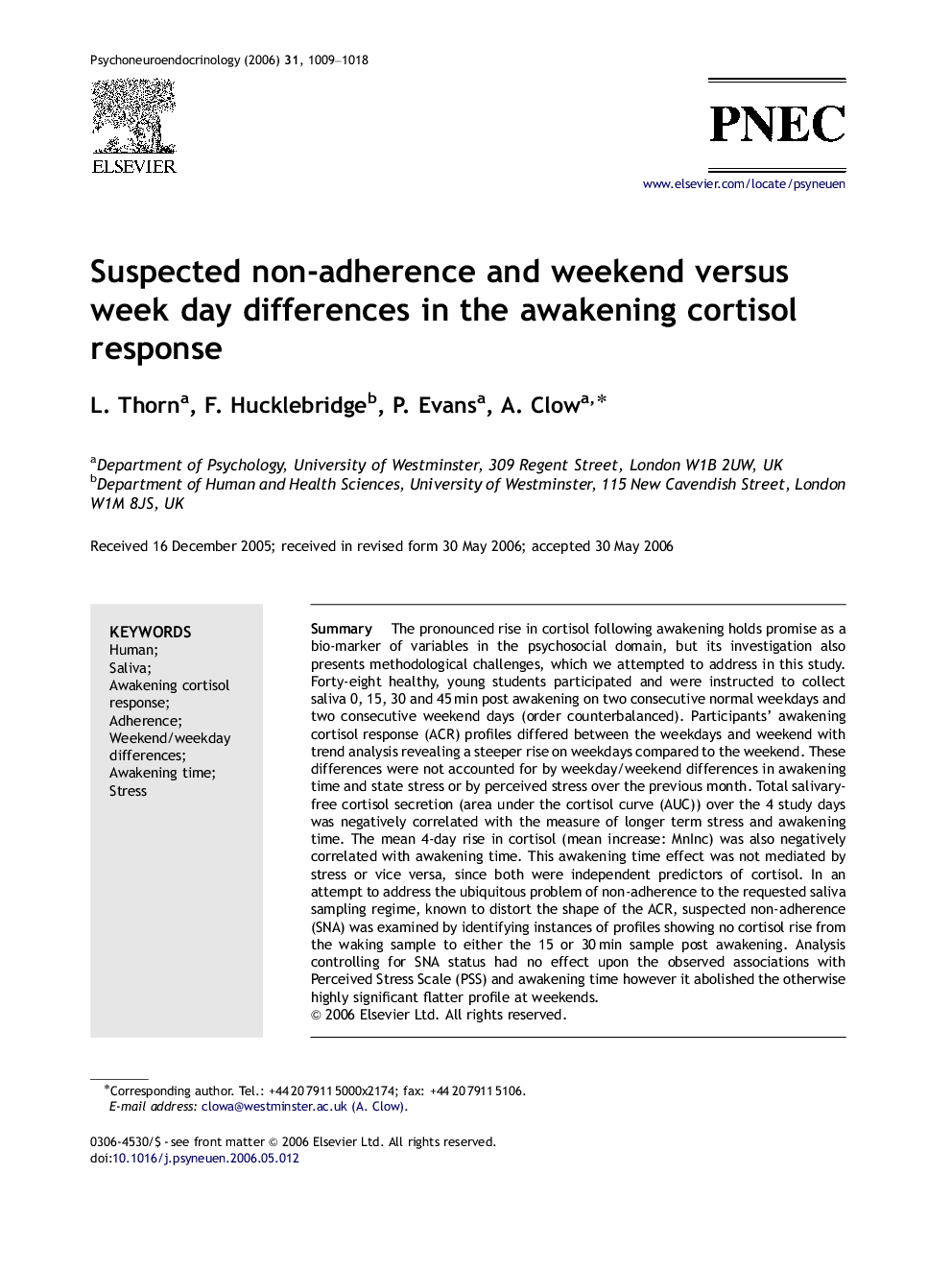| Article ID | Journal | Published Year | Pages | File Type |
|---|---|---|---|---|
| 337263 | Psychoneuroendocrinology | 2006 | 10 Pages |
SummaryThe pronounced rise in cortisol following awakening holds promise as a bio-marker of variables in the psychosocial domain, but its investigation also presents methodological challenges, which we attempted to address in this study. Forty-eight healthy, young students participated and were instructed to collect saliva 0, 15, 30 and 45 min post awakening on two consecutive normal weekdays and two consecutive weekend days (order counterbalanced). Participants’ awakening cortisol response (ACR) profiles differed between the weekdays and weekend with trend analysis revealing a steeper rise on weekdays compared to the weekend. These differences were not accounted for by weekday/weekend differences in awakening time and state stress or by perceived stress over the previous month. Total salivary-free cortisol secretion (area under the cortisol curve (AUC)) over the 4 study days was negatively correlated with the measure of longer term stress and awakening time. The mean 4-day rise in cortisol (mean increase: MnInc) was also negatively correlated with awakening time. This awakening time effect was not mediated by stress or vice versa, since both were independent predictors of cortisol. In an attempt to address the ubiquitous problem of non-adherence to the requested saliva sampling regime, known to distort the shape of the ACR, suspected non-adherence (SNA) was examined by identifying instances of profiles showing no cortisol rise from the waking sample to either the 15 or 30 min sample post awakening. Analysis controlling for SNA status had no effect upon the observed associations with Perceived Stress Scale (PSS) and awakening time however it abolished the otherwise highly significant flatter profile at weekends.
